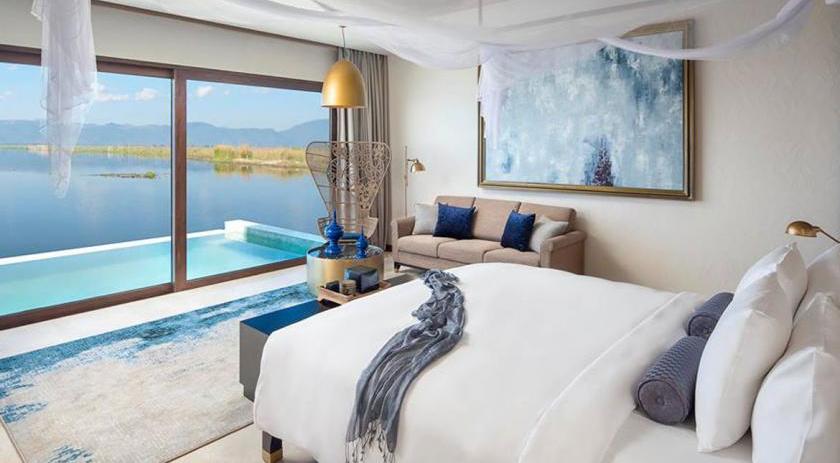
French Accorhotels is currently negotiating with local investors for seven more hotels across the country.
The Paris-headquartered hospitality multinational inaugurated their first hotel in Myanmar in 2013, and since then they have opened eight more. Philippe Battle, manager of two of these hotels, revealed to The Myanmar Times, “We are targeting big cities and major destinations for seven more hotel projects,” but he didn’t specify any more details due to confidentiality concerns.
“We already opened nine hotels - that shows how much we trust the future of Myanmar.” Usually, their modus operandi is tackling the market with 50 percent business and 50pc leisure. The hotels in Inle Lake and Mandalay, famously regarded as tourist destinations, break this norm, accommodating more leisure travellers.
Due to the nature of the tourism business, there’s the challenge of dealing with low seasons and other factors peculiar to Myanmar, one of them being the Rakhine crisis, which led to a loss of 20pc in all Accorhotels compared to 2017.
“We are on average about 20pc less than last year in Yangon. Other destinations suffer more or less the same fate. We are hoping that by the end of this year we will gain it all back. We are trying our best,” he added.
Additionally, tourist arrivals are decreasing at Yangon Airport, but more hotels are opening up in the city. This creates more market competition.
According to the Ministry of Hotels and Tourism, there are 399 hotels with over 20,845 rooms in Yangon. By the end of June, only 560,000 international visitors had arrived through Yangon airport, or only 3000 travellers per day on average.
The overall rate for Chinese and Thai tourists, some arriving by land, in the whole country increased a surprising 34pc and 16pc respectively by the end of July, against a drop of 10pc at Yangon airport.
“We are the youngest population in this part of Asia; this is one of the biggest countries in this part of the region. This is where GDP can grow the most, take a look at the past how telecommunication changed the country. Myanmar has a fantastic future compared to our neighbouring countries.” Mr Battle said.
After the country opened its doors to foreign investors in 2011, hoteliers raised their room prices by as much as 200pc to take advantage of the rising number of visitors and recover losses suffered during the 2007 Saffron Revolution and Cyclone Nargis in 2008, said U Kyaw Swa Min, managing director of Grand Lotus travel and tours company.
Myanmar is well-known as an expensive country for tourism but that was in the past due to the lack of services, Mr Battle added.
“In the past, there was a lack of supply. Obviously, the prices were very high. We’ve increased the supplies since, and nowadays the price, if you compare five-star hotel in Yangon and Bangkok, is the same. Inle and Mandalay are exclusive destinations. If you compare with the exclusive destinations in Thailand and Vietnam the prices are the same,” he explained.
However as a lot of hotels are opening up within the whole country, there still needs to be more vocational training, especially in speaking English.
“We all know the huge demand for the vocational school, and that is a good way to start. The government right now is working to find solutions, but this is an urgent matter required for the private hotels,” he said.
The strategy of Accorhotels is to focus on the domestic market as it has witnessed an increasingly high demand.
“Local market is growing very good. It shows Myanmar people are travelling more and that they want to discover their own country, which is positive. I would say a good example is Inle Lake. Many local people are coming from Yangon, Mandalay. So we need to focus on the local market too,” Mr Battle noted.
According to the Domestic Pilgrimages and Tour Operators Association, more than 7.1 million local people visited well-known destinations around the country within the nine months from August 2017 to the end of April this year.












